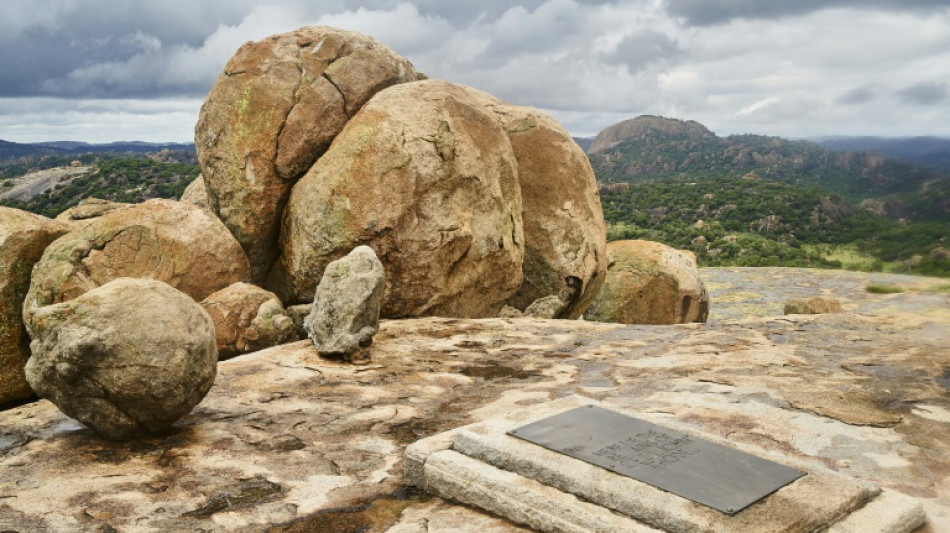
-
 Champions League spot would be 'Premier League trophy' for Man City: Nunes
Champions League spot would be 'Premier League trophy' for Man City: Nunes
-
Abbas urges Hamas to free Gaza hostages as Israeli strikes kill 18

-
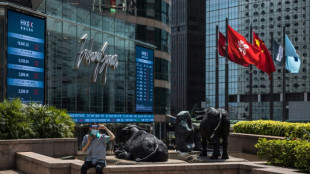 Stocks rally as Trump soothes fears over China trade, Fed
Stocks rally as Trump soothes fears over China trade, Fed
-
French PM's daughter says priest beat her as a teenager
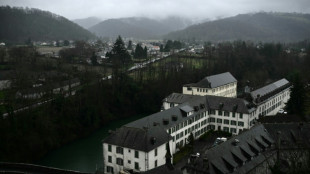
-
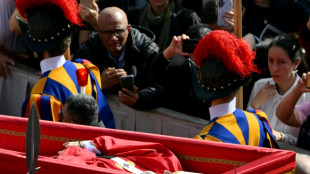 Tens of thousands say goodbye to Pope Francis lying in state
Tens of thousands say goodbye to Pope Francis lying in state
-
EU slaps fines on Apple and Meta, risking Trump fury

-
 Gaza rescuers recover charred bodies as Israeli strikes kill 17
Gaza rescuers recover charred bodies as Israeli strikes kill 17
-
Tourists flee India-administered Kashmir after deadly attack
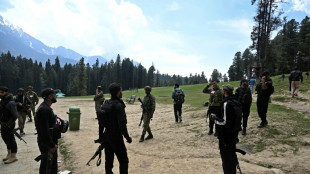
-
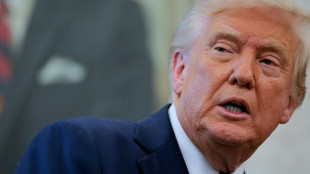 China says 'door open' to trade talks after Trump signals tariffs will fall
China says 'door open' to trade talks after Trump signals tariffs will fall
-
WEF confirms investigation into claims against founder Schwab

-
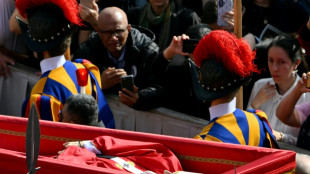 Pilgrims flock to pay tribute to pope lying in state
Pilgrims flock to pay tribute to pope lying in state
-
Stocks rally as Trump comments ease Fed, China trade fears
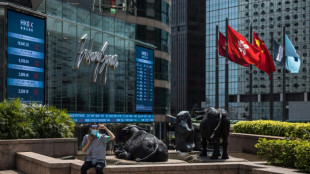
-
 Muzarabani takes six as Bangladesh set Zimbabwe 174 to win
Muzarabani takes six as Bangladesh set Zimbabwe 174 to win
-
PM faces first test as Singapore election campaign kicks off

-
 Patients with leprosy face lasting stigma in Ethiopia
Patients with leprosy face lasting stigma in Ethiopia
-
Still reeling a year on, Brazil's Porto Alegre fears next flood
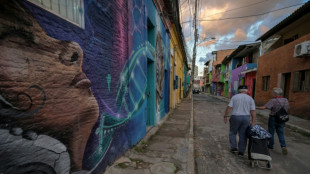
-
 Lakers level NBA playoff series, Pacers and Thunder win again
Lakers level NBA playoff series, Pacers and Thunder win again
-
At night, crime and fear stalk DR Congo's M23-run areas
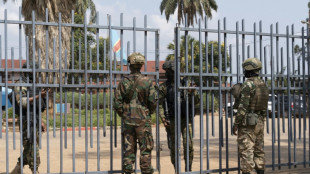
-
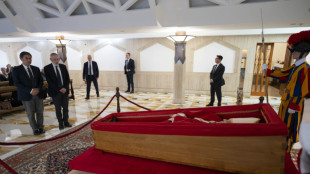 Embalming and make-up: Pope's body prepared for lying-in-state
Embalming and make-up: Pope's body prepared for lying-in-state
-
Prosecutors to make case against Harvey Weinstein at retrial
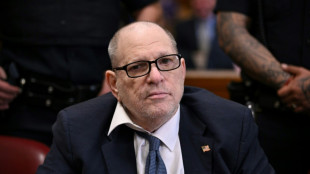
-
 Coral reefs pushed to brink as bleaching crisis worsens
Coral reefs pushed to brink as bleaching crisis worsens
-
Vietnam village starts over with climate defences after landslide
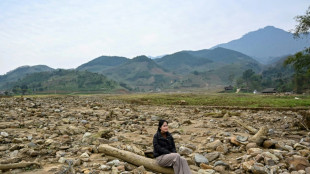
-
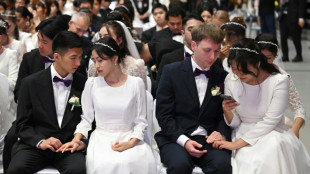 'Happiness, love' at Moonie mass wedding after Japanese court blow
'Happiness, love' at Moonie mass wedding after Japanese court blow
-
Veteran Chinese astronaut to lead fresh crew to space station

-
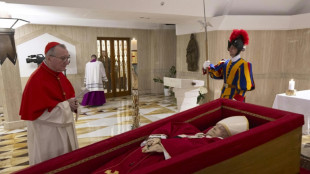 Pilgrims gather as Pope Francis begins lying in state
Pilgrims gather as Pope Francis begins lying in state
-
Asian markets rally as Trump comments ease Fed, China trade fears
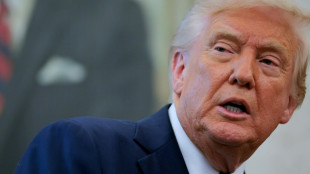
-
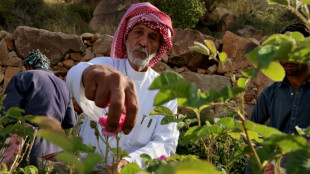 Saudi 'city of roses' offers fragrant reminder of desert's beauty
Saudi 'city of roses' offers fragrant reminder of desert's beauty
-
Trump says won't fire Fed chief, signals China tariffs will come down
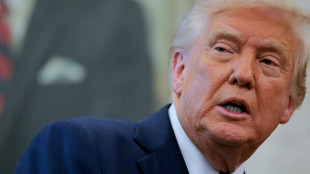
-
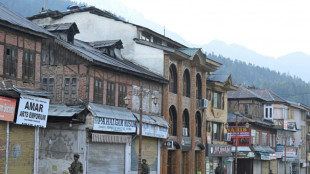 India hunts gunmen who massacred 26 in Kashmir tourist hotspot
India hunts gunmen who massacred 26 in Kashmir tourist hotspot
-
'No one else will': Sudan's journalists risk all to report the war
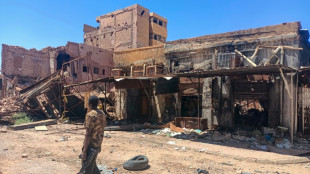
-
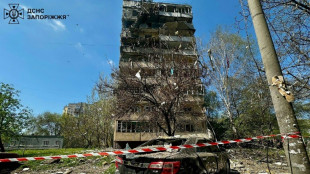 UK hosts new round of Ukraine talks
UK hosts new round of Ukraine talks
-
Trial testimony reveals OpenAI interest in Chrome: reports

-
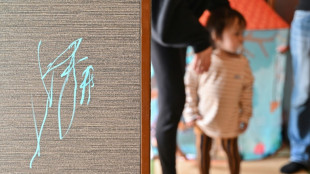 Tokyo's newest art star: one-year-old Thumbelina
Tokyo's newest art star: one-year-old Thumbelina
-
Ronaldo hunts Asian Champions League glory in Saudi-hosted finals

-
 Scientists sound alarm as Trump reshapes US research landscape
Scientists sound alarm as Trump reshapes US research landscape
-
Trump's return boosts Israel's pro-settlement right: experts
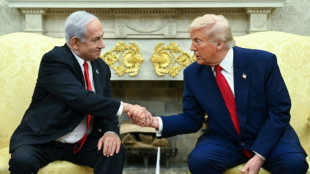
-
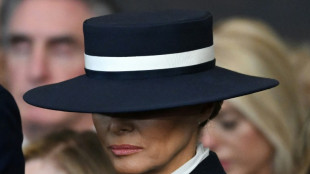 Trump solo: first lady, children out of frame in new term
Trump solo: first lady, children out of frame in new term
-
Climate watchers fret over Trump's cut to sciences

-
 Moving fast and breaking everything: Musk's rampage through US govt
Moving fast and breaking everything: Musk's rampage through US govt
-
'Everyday attack' - Trans youth coming of age in Trump's America
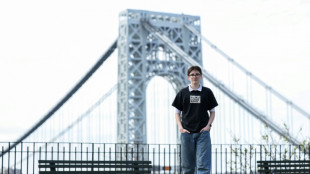
-
 A stadium and a jersey for Argentina's 'Captain' Francis
A stadium and a jersey for Argentina's 'Captain' Francis
-
New Trump task force vows to root out 'anti-Christian bias'

-
 96.com Congratulates Burnley FC on Premier League Promotion
96.com Congratulates Burnley FC on Premier League Promotion
-
Auto Shanghai showcases new EV era despite tariff speedbumps

-
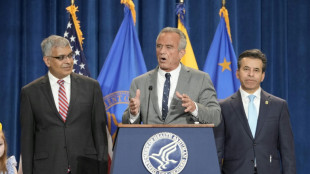 Trump's administration moves to scrap artificial food dyes
Trump's administration moves to scrap artificial food dyes
-
Musk to reduce White House role as Tesla profits plunge

-
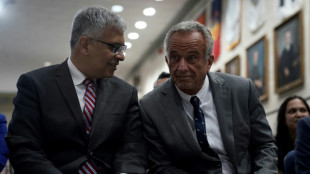 US official backs off promise to solve cause of autism by September
US official backs off promise to solve cause of autism by September
-
Guardiola joy as Man City go third after dramatic win over Villa

-
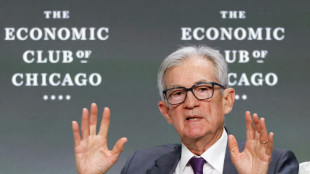 Trump says has 'no intention' of firing Fed chief
Trump says has 'no intention' of firing Fed chief
-
Jury finds New York Times did not libel Sarah Palin


British colonialist Cecil Rhodes's grave haunts Zimbabweans
It's a sacred hill where for centuries Zimbabweans would go to consult their ancestors.
It's also where the notorious British coloniser Cecil John Rhodes chose to be his final resting place.
The white supremacist died more than 120 years ago in South Africa aged 48 after carving out swathes of territory for the British empire.
Part of the land grab, later named Rhodesia in his honour, included modern Zambia and Zimbabwe.
Nestled in the Matobo National Park, his grave is simple, with "Here lie the remains of Cecil John Rhodes" engraved on it.
Part of the younger generation wants his remains removed to rid the country of the last vestiges of colonialism.
But the grave attracts tourists who bring much-needed income for surrounding villages -- and many local people oppose any exhumation.
Located atop a steep hill immersed in lush vegetation, a short climb is necessary to reach the grave, which is surrounded by imposing rocks rounded by erosion.
The stones are covered in light green aniseed and orange lichens that brighten at the slightest touch of the sun.
From the hilltop, visitors gaze at the vast expanse of trees around, where antelopes and warthogs roam.
Clouds roll across the tranquil horizon while birds chirp in the silence.
In neighbouring South Africa, students at the University of Cape Town launched a "Rhodes-Must-Fall" protest in 2015, initially to pull down Rhodes's statue at the campus.
It later morphed into a global campaign, which saw Oxford University resisting calls to remove a statue of the politician -- placing an explanatory panel next to it instead.
Often described as a philanthropist but also an arch-racist, Rhodes dreamt of a British Africa from Cape Town to Cairo, with the blessings of Queen Victoria.
Cynthia Marangwanda, 37, from Harare, is enraged by the presence of Rhodes grave.
She believes he chose that site because he knew its spiritual significance to the local people.
It was his "final display of power, a deliberate and calculated act... of domination," said the activist.
Zimbabwe's ex-strongman Robert Mugabe, who took the reins from independence from Britain in 1980, saw no reason to remove Rhodes's remains.
But Marangwanda has been energised by the current president, Emmerson Mnangagwa, who "understands the significance, the heritage aspect of the debate".
Even so, more than five years after Mnangagwa came to power, there is no indication of movement on the issue -- or consensus on where the remains would go.
- 'Pre-eminent shrine' -
The economic benefits accruing from the tourism, do not hold water for Marangwanda.
"Matobo is such a beautiful landscape, it doesn't need this colonial grave," to attract foreign visitors, she stressed.
The presence of the grave in Zimbabwe is an "insult to our very existence as a people," said historian and co-founder of Rhodes-Must-Fall campaign Tafadzwa Gwini, 33.
Exhuming the remains "is a form of reclaiming our identity as a people", insists Gwini.
Yet some visitors simply don't understand the outrage around the grave.
"I brought my kids. I also came here as a kid," said a 45-year-old white Zimbabwean, Nicky Johnson. "History shouldn't be tampered with. He wanted to be buried here, that's how it should be".
Akhil Maugi, 28, who lives from nearby city of Bulawayo, shares similar sentiments.
"You can't erase what happened. No one would come here if this grave was gone," he said.
Pathisa Nyathi, a 71-year-old local historian, points out that it was "the grandeur of the rocks" that made it a "holy site" that once attracted pilgrims from neighbouring countries.
The "pre-eminent shrine" in the region "was sacred to Africans" but not to Rhodes, said Nyathi.
Opposition MP and ex-education minister David Coltart, who regularly cycles in Matobo park, brings some humour to the debate saying "I must say Rhodes had an incredible eye for real estate".
Exiting the park, is a roadside market selling T-shirts, woven baskets and carved animals to tourists.
A little further is a village with a few houses.
Micah Sibanda, 82, stands barefoot, leaning on a walking stick, overlooking a few cows.
Rhodes's grave is "important" to the villagers because it attracts visitors who in turn buy crafts "and we get some money to send our kids to school, ...get food and clothing," said Sibanda.
If the grave is removedwill be very painful for us".
After all, Sibanda said, the white visitors are also coming "to pay respects to their own ancestor."
M.Odermatt--BTB


